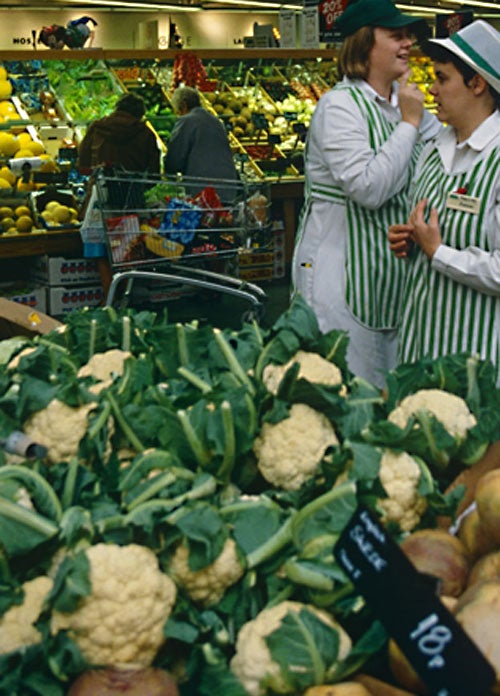Low prices force farmers to give up on cauliflowers

Your support helps us to tell the story
From reproductive rights to climate change to Big Tech, The Independent is on the ground when the story is developing. Whether it's investigating the financials of Elon Musk's pro-Trump PAC or producing our latest documentary, 'The A Word', which shines a light on the American women fighting for reproductive rights, we know how important it is to parse out the facts from the messaging.
At such a critical moment in US history, we need reporters on the ground. Your donation allows us to keep sending journalists to speak to both sides of the story.
The Independent is trusted by Americans across the entire political spectrum. And unlike many other quality news outlets, we choose not to lock Americans out of our reporting and analysis with paywalls. We believe quality journalism should be available to everyone, paid for by those who can afford it.
Your support makes all the difference.Cauliflower is the latest British vegetable to be priced off the dinner table because farmers cannot make a profit from the low prices that supermarkets are prepared to pay.
Growers of the vegetable in the UK, once a staple in British homes, say it is no longer a viable crop. Many farmers look set to abandon it altogether: after receiving just 18 pence per cauliflower when each head costs up to 35p to produce.
The National Farmers' Union estimates that each cauliflower farmer is making a loss of between £400 and £500 per acre of the crop. Richard Hirst, chairman of the union's horticulture board said: "I sincerely hope this doesn't mark the end of the British cauliflower, because there's a demand for home-grown locally produced food. But growers simply can't continue if they won't make any money from it."
"Four years ago, we were getting 40 per cent of the retail price, and now it's much closer to 20 per cent. The pain is being taken by the growers; if the crop goes wrong, they have all the risk. I think that risk should be shared. The supermarkets have a business to run, but they need to think long term. It may not always be easy to get produce from other parts of the world; take the situation in Kenya, for example."
The reason for the sudden gulf in production cost and price is also a result of the wet summer last year.
Planting of the crop usually begins in late summer, and is staggered over the following months to ensure a continual supply over the winter. But the severe flooding in July forced growers to delay planting, and this has resulted in a bottleneck. The delay meant that instead of staggering the planting process, one crop was planted in the autumn. In December, that resulted in a shortage of home-grown cauliflowers but now the bumper crop is being harvested, farmers have a surplus which has driven down their value.
Robert Montgomery, formerly Kent's biggest cauliflower grower, has already abandoned the crop, saying the market is no longer viable. Other farmers may have to follow suit.
Charlie Hicks, a greengrocery chain owner, said that the problem lay in the control that supermarkets wield over price. "It's absurd; it's the same with milk production", he said. "Supermarkets have an absurd amount of power. They push prices down and something's got to give. What a tragedy it would be if cauliflowers disappeared because of the supermarkets."
Join our commenting forum
Join thought-provoking conversations, follow other Independent readers and see their replies
Comments